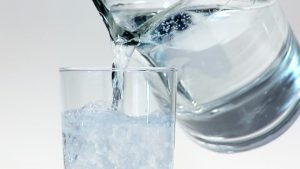Why Water Is So Important? (Functions of Water)

Why Water Is So Important for Life? Water has been regarded as one of the most valuable natural resources since ancient times. Water is a must for human life. Experts say that it is important for our health to drink a certain amount of water regularly every day. Water is very beneficial for the maintenance of human health. When water is consumed less than the daily intake, some health problems may be invoked. A proper amount of water consumption is vital for all organs, especially kidneys, heart, and liver. We will explain the function of water and dehydration in the following text.
Benefits of Water on Human
Almost 60 percent of the body is water and water has much more important and different tasks than you might think: maintaining body temperature, transporting oxygen and nutrients to cells, maintaining kidney and intestinal function, moistening of body tissues and skin, joint slippery and much more. When you drink water regularly, your digestive system starts to heal. Water helps break down the nutrients you eat, making your digestive system work perfectly. Water slows aging because it accelerates the elimination of toxins from the body. By repairing skin cells, it increases the elasticity of the skin, resulting in a brighter and more vibrant appearance of the skin.
Functions of Water

- Digestion, absorption, and transport of food to the cells
- The formation of biochemical reactions necessary for life and health in cells
- Working of cells, tissues, organs, and systems
- Transport and disposal of harmful substances caused by metabolism
- Control of body temperature
Do not Prefer Other Drinks to Water
Consuming 8-9 cups or 2-2.5 liters of water per day meets the body’s need for water. Those who do not like the taste of water or who experience nausea; they can sweeten water in sliced fruit slices or vegetables such as pond and celery. Drinks such as tea and coffee should not be replaced by water as it increases the discharge of water from the body.
Dehydration
Dehydration occurs as a result of the loss of too much water or fluid in the body. If the body loses more than the fluid it receives, it will result in dehydration. Inadequate water intake in the body can lead to many important health problems such as attention problems and memory disorders. Mild dehydration is easy to treat. However, if Dehydration reaches excessive or high levels, it requires immediate medical attention and may be life-threatening.
- 1%: Feeling of thirst, an increase in body temperature decreased performance,
- 3%: an increase in body temperature, excessive thirst,
- 4%: 20-30% decrease in physical performance,
- 5%: Headache, fatigue,
- 6%: Fatigue, tremor,
- 7%: Fainting,
- 10%: Unconsciousness,
- 11%: Body resistance, possible death,
- 12%: 97% death,
- 15%: 100% death.
Bottom Line
In addition to the amount of water consumption, there are other issues to consider. When 1.8 billion people in the world are deprived of water and two-thirds of the world’s population is estimated to be in areas where problems related to this situation will be experienced in 2025, it is important for the public to know about the consumption of water, which is of vital importance.





